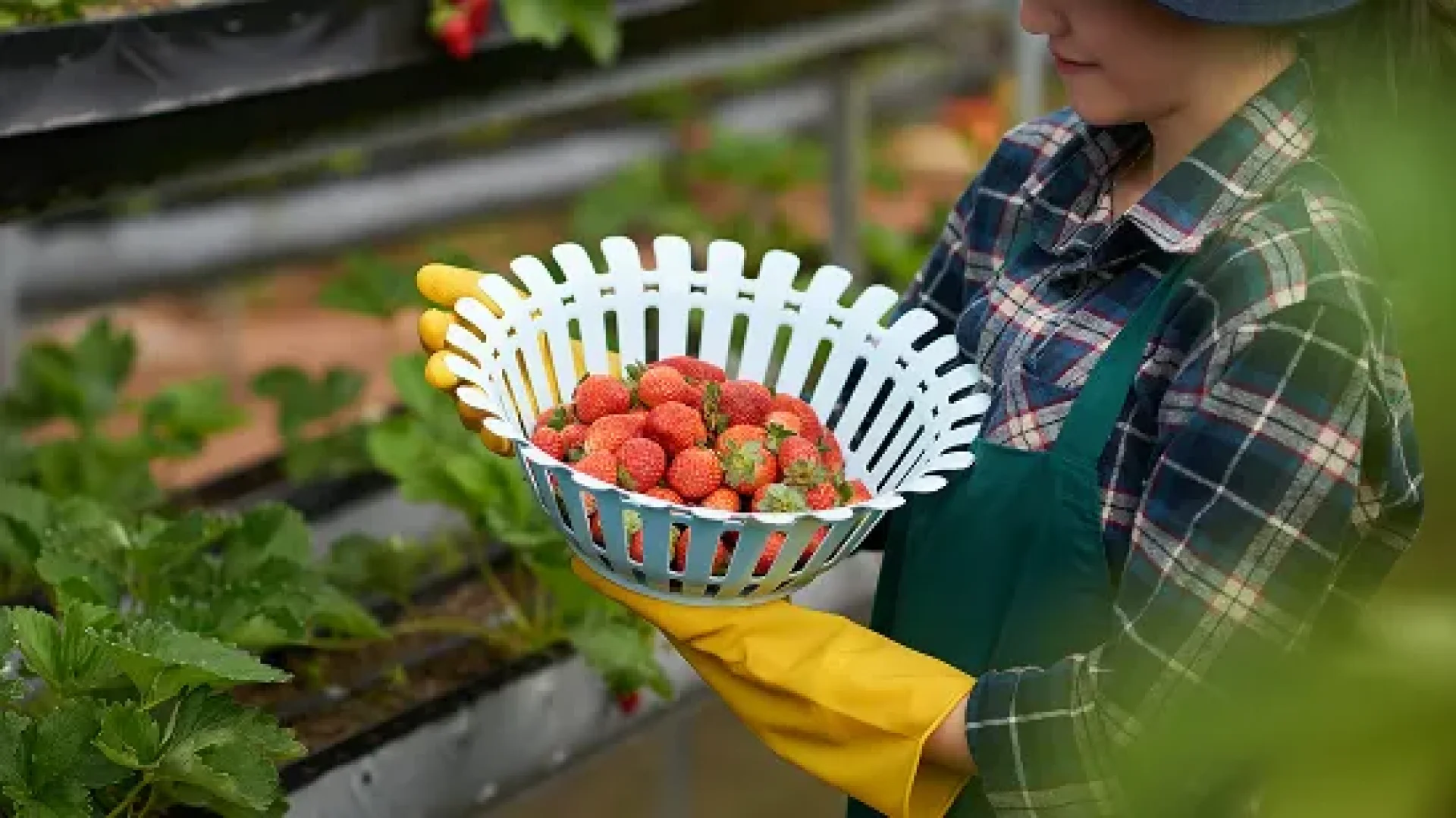Why Organic Strawberries Are the Sweetest and Healthiest Choice
อัพเดทล่าสุด: 16 เม.ย. 2025
107 ผู้เข้าชม

1. Healthier for You and Your Family
Organic strawberries are grown without synthetic pesticides, herbicides, or chemical fertilizers. These chemicals can linger on conventionally grown fruit and end up in your body. By choosing organic strawberries, youre reducing your exposure to harmful substances, ensuring a safer, more nutritious snack. Organic farming also typically uses non-GMO seeds, meaning the strawberries youre eating are grown in a more natural way.
2. Better for the Environment
Organic farming is more environmentally friendly than conventional farming. Organic strawberry farmers rely on natural methods to manage pests and fertilize the soil, which reduces the risk of soil and water contamination. By avoiding synthetic chemicals, organic farming practices help preserve biodiversity and create healthier ecosystems.
3. More Flavorful and Fresh
If youve ever tasted both conventional and organic strawberries, you might have noticed a difference in taste. Organic strawberries are often sweeter and more flavorful. This is because organic farming methods prioritize the health of the soil and the plant, resulting in strawberries that are more nutrient-rich and naturally flavorful.
Organic strawberries are grown without synthetic pesticides, herbicides, or chemical fertilizers. These chemicals can linger on conventionally grown fruit and end up in your body. By choosing organic strawberries, youre reducing your exposure to harmful substances, ensuring a safer, more nutritious snack. Organic farming also typically uses non-GMO seeds, meaning the strawberries youre eating are grown in a more natural way.
2. Better for the Environment
Organic farming is more environmentally friendly than conventional farming. Organic strawberry farmers rely on natural methods to manage pests and fertilize the soil, which reduces the risk of soil and water contamination. By avoiding synthetic chemicals, organic farming practices help preserve biodiversity and create healthier ecosystems.
3. More Flavorful and Fresh
If youve ever tasted both conventional and organic strawberries, you might have noticed a difference in taste. Organic strawberries are often sweeter and more flavorful. This is because organic farming methods prioritize the health of the soil and the plant, resulting in strawberries that are more nutrient-rich and naturally flavorful.
บทความที่เกี่ยวข้อง
In a world where modern agricultural methods have increasingly relied on chemicals
16 เม.ย. 2025
Organic farming isn't just a trend—it’s a movement that’s transforming the way we think about food
16 เม.ย. 2025
As concerns about climate change, environmental degradation, and public health continue to rise
16 เม.ย. 2025


